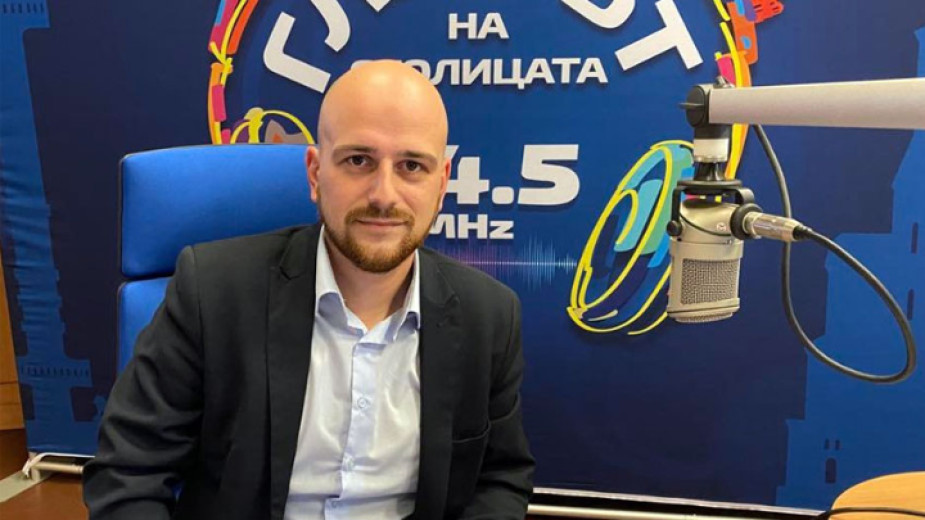A string of domestic and foreign policy crises and no 100-day tolerance. Such are the circumstances in which the ruling majority has been working in Bulgaria, a majority which constitutes a complex structure made up of four parties with very different, at times even conflicting positions on all kinds of important issues. Adding to this the conflict between the government and the prosecutor’s office, which goes back over a year, as well as the friction with President Rumen Radev over some issues, the survival of the government seems to be a difficult job indeed.
“The coalition of the four ruling parties was formed on the basis of anti-GERB consolidation. The trouble is that public attitudes are very fluid and change very quickly,” political scientist Svetlin Tachev explains in an interview with the BNR.

“The war in Ukraine is reminding us of an old dividing line – between “-philes” and “-phobes”. In it the government is not feeling particularly comfortable, as, on one side of the line is the Bulgarian Socialist Party, BSP, (which is adamant that it will leave the coalition if Bulgaria sends Ukraine any military aid – editorial note), and on the other side are the politicians with Euro-Atlantic orientation, like the ones from Democratic Bulgaria. For this reason, any decisions regarding the war in Ukraine are difficult - and are stalling,” Svetlin Tachev says and adds:
“There are other, minor conflicts within the coalition as well which do not have the potential to impact the cabinet’s stability. One such conflict is the collision over the choice of Bulgarian National Bank governor. A way will be found to resolve this problem, as it would be a big mistake if it were to bring down the cabinet. I am not sure that the voters would forgive a disintegration of the coalition in times as complex as they are now, both inside and outside the country.”
The fact that the government was unable to formulate common policies, on which the coalition partners agree, is indicative of one thing and one thing only – that there will be more and more conflicts among them, and more and more often, political analyst Strahil Deliyiski believes, but also adds one more important element to the political picture:

“The idea that parliamentary democracy is implemented through parties has become defective. We Continue the Change are not a party, of which it is clear whose social and public interests they are defending, with There Is Such a People it is exactly the same thing. In the Bulgarian Socialist Party, too, everything is concentrated around the personal political notions of the leader.”
As regards the positions of the partners on the most important foreign policy issues, such as the war in Ukraine and the veto on the launch of North Macedonia’s EU accession negotiations, once again they are at the two extremes and carry excessive emotions, which is not necessarily a good approach when common decisions and actions are needed.
“There is no way, as is the case with North Macedonia, to have different decisions and to expect this to lead to a resolution of the crisis,” political analyst Tatyana Burudzhieva said for the BNR, and added:

“This is an issue that is causing society to implode, as it carries excessive emotions. The Prime Minister was able to improve Bulgaria’s position with our European partners, including by paying his very first visit abroad, after assuming office, to Skopje. But from then on nothing concrete followed, there was no evolution of Bulgaria’s position on the European future of our neighbour. He promised the conflict would be resolved and the relations between the two countries would improve but the truth is that economic relations simply cannot resolve the other problems like hate speech, the attempts at eroding the Bulgarian identity, the attempts to pressure people away from their Bulgarian identity and other undemocratic methods – as so eloquently illustrated by the results of the national census in North Macedonia which showed there are only 3,504 Bulgarians living there.”
There is exactly the same kind of polarization within the coalition, and society, when it comes to granting Ukraine military aid, Tatyana Burudzhieva says.
To sum up, taking a look at the big picture it would be no easy thing to guess how long it will be before early elections for parliament will have to take place.
Interview by: Lachezar Hristov – Radio Sofia, Paolina Konsalova – BNR-Plovdiv and Alexander Raichev – Hristo Botev channel, BNR
Text: Yoan Kolev
Photos: BGNES, BNR, library"What we have let slip, we have let slip over the last 20 years, not yesterday or the day before." This was stated to the Bulgarian National Radio by Ivaylo Valchev, MEP from the European Conservatives and Reformists (ECR), before today's vote in..
At the end of last week, we witnessed the third consecutive failed vote of no confidence against the government of Prime Minister Rosen Zhelyazkov. This time, the motion was initiated by Vazrazhdane (Revival), the third largest parliamentary political..
The draft report on the progress of North Macedonia on its path to European integration has been a hot Balkan topic in recent weeks, after rapporteur Thomas Weitz included in the document concepts such as "Macedonian identity" and..

+359 2 9336 661
